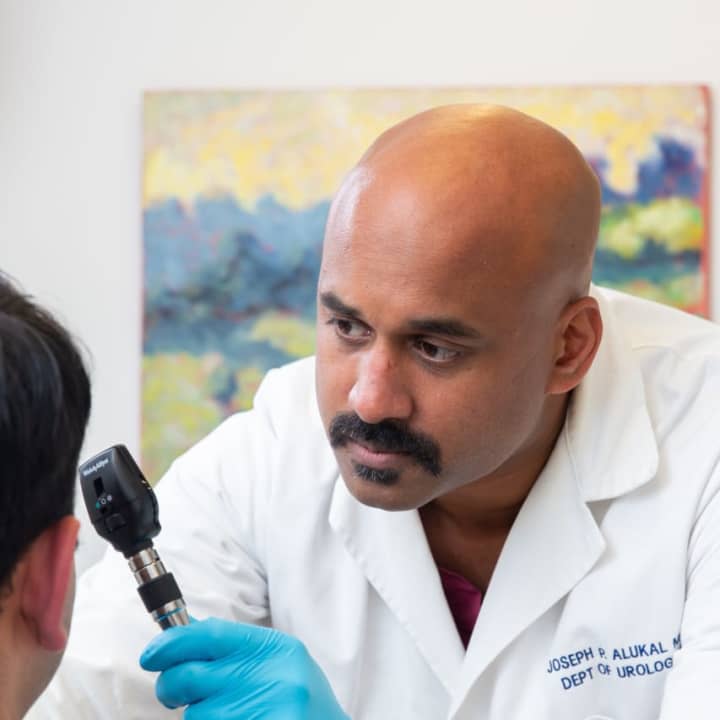“There is no demographic that utilizes healthcare resources less than men between the ages of 18 and 45, followed closely by men ages 45 to 64,” says Dr. Joseph Alukal, a urologist at NewYork-Presbyterian Lawrence Hospital and an associate professor of urology at Columbia University Vagelos College of Physicians and Surgeons.
Dr. Alukal shares what screenings and doctor’s visits men should have during each decade of their lives in order to stay as healthy as possible.
For men in their 20s and 30s
- Primary care visit: Once a year. “Even if you’re in your 20s and 30s and are generally healthy, create a relationship with a doctor you are comfortable with,” says Dr. Alukal.
- Blood test screening: Once a year. “The blood work that’s being done includes things like measurements of white and red blood cells, blood chemistry, blood sugar, and cholesterol,” says Dr. Alukal, explaining that this allows physicians to assess your risk for conditions like diabetes, kidney disorders, and heart disease.
For men in their 40s and 50s
- Primary care visit: At least once a year or as often as needed.
- Routine blood test screening: At least once a year or as often as needed.
- Colonoscopy: The American Cancer Society recommends starting screening at age 45—earlier if you have a family history of colon cancer. For those without a history of colon cancer, it’s generally recommended to get a colonoscopy every 10 years after the initial screening.
- PSA (prostate-specific antigen) blood test: Once a year starting at age 55, or earlier if you have a family history of prostate cancer. “The strong recommendation from the American Urological Association is to get a prostate exam and a PSA, a blood test that indirectly measures prostate cancer risk, at age 55,” says Dr. Alukal. “While the manual prostate exam is definitely something that patients need at least once a year once they turn 40, the PSA test has become a very controversial test and for good reason—it’s not perfect. That’s why I always encourage men, once they’re in their 40s, to speak with their doctor, share their family history of prostate cancer, if any, and move forward from there. Prostate cancer behaves differently than, say, colon cancer, so I recommend working with a urologist to determine when to start screening. You can then have the discussion about the PSA test, its risks and benefits, and whether you need to get one.”
- Skin cancer screening: Once a year. More frequently if there is a family history of skin cancer or a history of prolonged sun exposure.
- Cardiology screening: At least once a year or as needed, especially if you have a family history of heart disease.
For men in their 60s and older
- Primary care visit: At least once a year or as often as needed.
- Routine blood test screening: At least once a year or as often as needed.
- Colonoscopy: Varies for each individual and depends on family history of colon cancer and the colonoscopy results.
- Prostate exam and/or PSA blood test: Once a year.
- Skin cancer screening: Once a year. More frequently if there is a family history of skin cancer or a history of prolonged sun exposure.
- Cardiology screening: At least once a year or as needed, especially if you have a family history of heart disease.
NewYork-Presbyterian Lawrence’s Commitment to Men’s Health
Dr. Alukal leads NewYork-Presbyterian Lawrence’s Men’s Health Program. A collaboration between primary care physicians, urologists, and cardiologists from NewYork-Presbyterian/Columbia University Irving Medical Center and NewYork-Presbyterian Medical Group Westchester, the program offers care across Westchester County and Manhattan.
“We wanted to create something where if a man needed a provider, he could easily and quickly access someone,” says Dr. Alukal. “Telemedicine was always a big factor in the program, but it’s even more important now given the COVID pandemic to be able to provide men the care they need at their fingertips.”
Visit nyp.org/lawrencemens to find a doctor and learn more.


